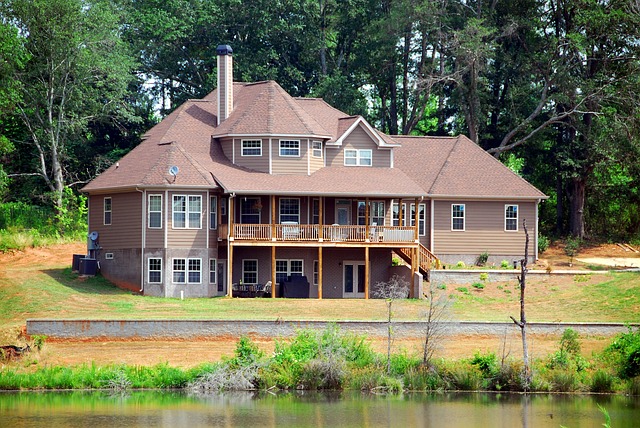Buying an investment property requires a lot of thought, as does deciding whether or not to renovate. When buying an investment property, there is a tendency to fall into the notion that changes need to be made in order to make a property not only more appealing but also more liveable.
What investors need to take into account is that while their investment properties might not tick all their personal boxes, it could meet all the needs of renters. Therefore, before renovating, there are a few key things that investors need to take into account. Firstly, does the property really need renovating? Secondly, am I only renovating to align the property with my own personal tastes? And lastly, are these changes cosmetic or infrastructure based?

Smart renovations can undoubtedly increase rental returns, however, renovating a property isn’t only about what changes you make, but also understanding when to make the changes.
Understanding the difference between renovation and repair
In order to increase the earning power of a rental, an investor might consider making renovations or repairs. Sometimes, simple repairs such as changing the handles on kitchen cabinets or the taps and shower head in the bathroom are all that’s needed to spruce up a rental and therefore increase renter appeal.
In other situations, renovations like the knocking down of walls to create a bigger kitchen or adding an additional bedroom might be needed in order to create interest and demand for a rental property.
Before embarking on renovations and repairs, consider the shortcomings of an investment property and list what areas need an upgrade in order of priority, keeping in mind the first things that potential investors will see when they arrive for open inspections. Do your research and make sure to consider if you’re making the renovations or repairs for the right reason (making the property more liveable) rather than renovating to have the home suit your own personal tastes.
Remember that renovations don’t necessarily have to signal big changes.
Understanding market demand
Knowing the right time to renovate also comes down to understanding market demand. For example, market demands may indicate that properties with an additional bedroom (rather than a second living area) are popular. With this in mind, you may choose to renovate your investment property so that a space can be converted into an additional bedroom in order to attract more tenants come inspection time.
However, market demands don’t necessarily dictate big changes. Often, renters are looking for clean, livable spaces in which they can picture themselves living. Then, renovating an investment property simply comes down to replacing outdated fittings with modern finishes, and painting walls and fixtures in neutral colours in order to attract more demographics.
It is also important to understand market demands before commencing renovations if you want to save money. Investors could go through the process of infrastructure related renovations only to find that the rental market isn’t saturated with tenants at the moment. In that instance, investors not only have the lack of rent to consider, but also the renovation expenses.
Understanding the capital required and the costs/conditions pertaining to tenancy
Understanding when (and even if) to undergo rental property renovations boils down to investors wanting more money from their investment. Yet, what happens when renovations are undertaken unnecessarily, or even, at the wrong time? Investors end up losing out on money.
Realtors Lead Generation Appointments
Before any form of changes are initiated, consider what truly needs to be done in order to increase profitability and livability. After deciding on the changes and undertaking market and demographic research to back up the viability of the renovation, investors should then start thinking about capital, costs, and conditions.
By sitting down and creating a budget, there should be no surprises when the final bills are handed in. Investors should know how much the renovations are costing. That way, before any work begins, investors know if they can comfortably afford the costs, even if the worst happens and the property remains vacant for months.
It’s also important to undergo work legally and safely. Acquire the relevant certificates, permits, and plans. This helps ensure that the renovations are done safely and lawfully. Tree Trimming and Removal
Things to consider while planning
What would make you feel at home?
Due to housing affordability, many first time buyers, such as young couples and families, choose to rent instead of buying a property. Therefore, long term tenancies are common so it is important to make them feel at home.

Look at your rental property and determine if things like dishwashers, dryers and or washing machines are going to make for increased livability. More simple things like modern fittings or neutral colour palettes can go along way towards helping renters picture themselves living in your rental property.
What are the tenants’ rights?
Before you launch into repairs and renovations, you have to consider whether you are going to disrupt tenants currently living in the property.
Most tenants would be happy to live through minor repairs if they are going to reap the benefits, but you may have to consider alternative options so as not to upset them.
Depending on the tenancy regulations in your state, you may need to give your tenants plenty of notice by law if you require them to vacate the property temporarily.
Is it time to renovate?
Understanding when and if to renovate requires practical thought. Investors need to consider a multitude of questions. From determining if the scale of the changes are big or small, to working out the cost involved, deciding to go through with renovations is a case of what to change and when to change in order to get the best results. We buy houses in Miami.

